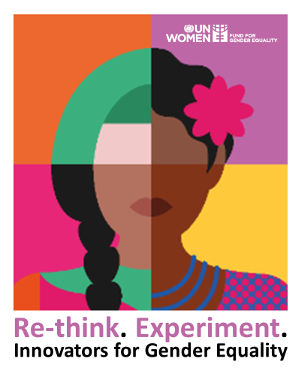Testing new approaches to leave no woman and girl behind
Women’s rights organizations from eight countries gather to identify and prototype new solutions to gender equality challengesDate:
Experienced civil society activists from Albania, Algeria, Lebanon, Nigeria, Palestine, Paraguay, Philippines and Tanzania are challenging their assumptions about gender equality programming. Gathered in September in Istanbul, they explored new ways to look at the problems faced by women and girls and identifying new solutions to test.

How can rural women from disadvantaged communities transition from small-scale producers to profitable entrepreneurs? How can we find creative solutions to keep women’s rights in the political agenda in a conflict setting? How can we address specific cultural barriers that hinder women’s political participation? How can we engage migrant workers in learning activities that will support their successful return? How can we motivate more domestic workers to join associations to claim their labor rights?
These were some of the initial challenges identified by UN Women’s Fund for Gender Equality (FGE) grantees as recurrent stumbling points that prevent them from achieving larger scale results. Being complex, “wicked” problems, they require engaging with unusual actors, exploring new points of view, trying innovative solutions. And this is what the Fund’s “Re-think. Experiment.” pilot is trying to enable.
Alia El Yassir, UN Women Regional Director for Europe and Central Asia and Representative to Turkey, welcomed the international innovators for gender equality by stressing the importance of changing the way we work and use new approaches such as social innovation to achieve the 2030 Development Agenda. “This is a moment to re-think what we are doing, to think outside the box and experiment,” she said.
The eight participating civil society organizations (CSOs), previous recipients of UN Women’s grants, spent the past two months interviewing project beneficiaries – the ‘end users’ of their projects – partners and their own colleagues and reflecting about key actors and their roles, in the hope of gaining a deeper understanding of the realities that the most disadvantaged women face – their real needs and motivations.
Read the full story on UN Women's website for Europe and Central Asia